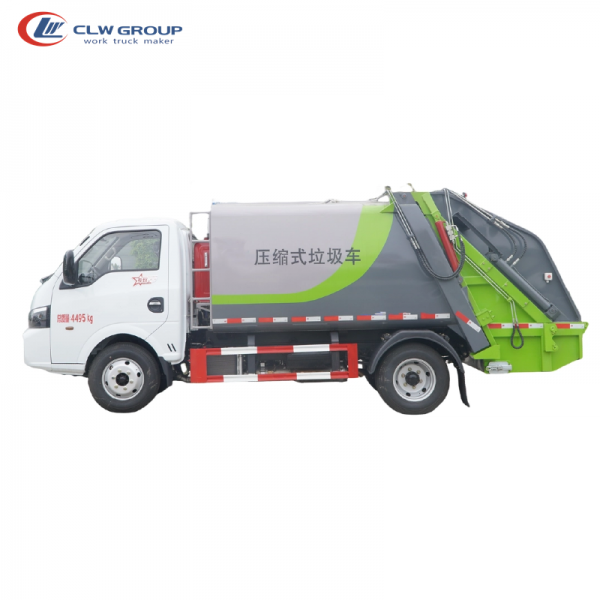Introduction
Work truck trailers play a crucial role in various industries, from construction and landscaping to transportation and agriculture. These trailers are responsible for transporting equipment, materials, and goods to and from job sites, making them an essential asset for many businesses. To ensure the safety of both the drivers and the cargo being transported, regular inspections of work truck trailers are necessary. In this comprehensive guide, we will delve into the importance of work truck trailer inspections, the key components to check, and best practices for conducting thorough inspections.
Importance of Work Truck Trailer Inspections
Work truck trailer inspections are vital for several reasons. First and foremost, they help ensure the safety of the driver, passengers, other road users, and the cargo being transported. A well-maintained trailer reduces the risk of accidents caused by mechanical failures or structural issues. Regular inspections also help identify potential problems early on, allowing for timely repairs and maintenance, which can prevent more significant issues down the line.
Moreover, work truck trailer inspections are often required by law to comply with safety regulations and standards set by governing bodies such as the Department of Transportation (DOT) in the United States. Failing to adhere to these regulations can result in fines, penalties, or even the suspension of operations, which can have a significant impact on a business's bottom line.
Additionally, conducting regular inspections helps prolong the lifespan of the trailer and its components. By identifying and addressing issues promptly, businesses can avoid costly repairs or replacements and ensure that their trailers remain in optimal working condition.
Key Components to Check During Inspections
When performing a work truck trailer inspection, it is essential to thoroughly check various components to ensure the trailer's safety and functionality. The following are key components that should be included in every inspection:
1. Brakes: Inspect the brake system, including brake pads, drums, rotors, and hydraulic lines, to ensure they are in good working condition. Check for any signs of wear, corrosion, or leaks that could affect braking performance.
2. Lights and Electrical Systems: Test all lights, including taillights, brake lights, turn signals, and clearance lights, to ensure they are functioning correctly. Check the wiring and connections for any damage or corrosion that could cause electrical issues.
3. Tires and Wheels: Inspect the tires for proper inflation, tread wear, and signs of damage or uneven wear. Check the wheels for loose lug nuts, cracks, or other defects that could lead to tire failure.
4. Suspension System: Check the suspension components, including leaf springs, shocks, and bushings, for signs of wear or damage. Ensure that the suspension is properly aligned and that all components are securely attached.
5. Coupling Mechanism: Inspect the coupling mechanism, such as the fifth wheel or pintle hook, to ensure it is functioning correctly and securely attached to the truck. Check for any signs of wear or damage that could compromise the trailer's connection to the truck.
6. Frame and Undercarriage: Inspect the trailer's frame and undercarriage for signs of rust, corrosion, cracks, or other structural issues. Pay close attention to areas where components are welded or joined together, as these are common points of failure.
7. Cargo Securement: Check that all cargo securement devices, such as straps, chains, and tie-downs, are in good condition and properly secured. Ensure that the cargo is loaded evenly and securely to prevent shifting during transit.
Best Practices for Conducting Inspections

To ensure thorough and effective work truck trailer inspections, it is essential to follow best practices that promote safety and efficiency. The following tips can help businesses streamline their inspection processes and maximize the effectiveness of their maintenance efforts:
1. Establish a Regular Inspection Schedule: Develop a routine inspection schedule based on the trailer's usage, mileage, and operating conditions. Regular inspections help identify issues early and prevent unexpected breakdowns or failures.
2. Use a Checklist: Create a comprehensive inspection checklist that covers all essential components of the trailer. Having a standardized checklist ensures that no critical items are overlooked during the inspection process.
3. Conduct Pre-Trip Inspections: Before each trip, drivers should perform a pre-trip inspection of the trailer to ensure it is roadworthy and safe to operate. Sweeper trucks capacity can help catch any immediate issues that require attention before hitting the road.
4. Involve Trained Personnel: Ensure that inspections are conducted by trained and qualified personnel who understand the components of the trailer and can identify potential issues accurately. Training employees on proper inspection procedures can improve the quality of inspections and promote safety.
5. Keep Detailed Records: Maintain detailed records of all inspections, repairs, and maintenance activities performed on the trailer. This documentation can help track the trailer's maintenance history, identify recurring issues, and ensure compliance with regulatory requirements.
6. Address Issues Promptly: If any issues are identified during an inspection, address them promptly to prevent further damage or safety hazards. Establish a protocol for reporting and resolving maintenance issues to ensure timely repairs.
7. Monitor Trailer Performance: Keep track of the trailer's performance metrics, such as fuel efficiency, braking distance, and handling characteristics, to identify any changes that may indicate underlying issues. Monitoring performance can help catch problems early and prevent more extensive damage.
Conclusion
Work truck trailer inspections are a critical aspect of maintaining the safety, efficiency, and longevity of trailers used in various industries. By conducting regular inspections, businesses can ensure that their trailers are in optimal working condition, comply with safety regulations, and minimize the risk of accidents or breakdowns. By following best practices, such as establishing a regular inspection schedule, using checklists, and addressing issues promptly, businesses can streamline their maintenance efforts and promote a culture of safety and compliance. Prioritizing work truck trailer inspections is not only a legal requirement but also a sound business practice that can help protect employees, assets, and the public while ensuring the smooth operation of business operations.
